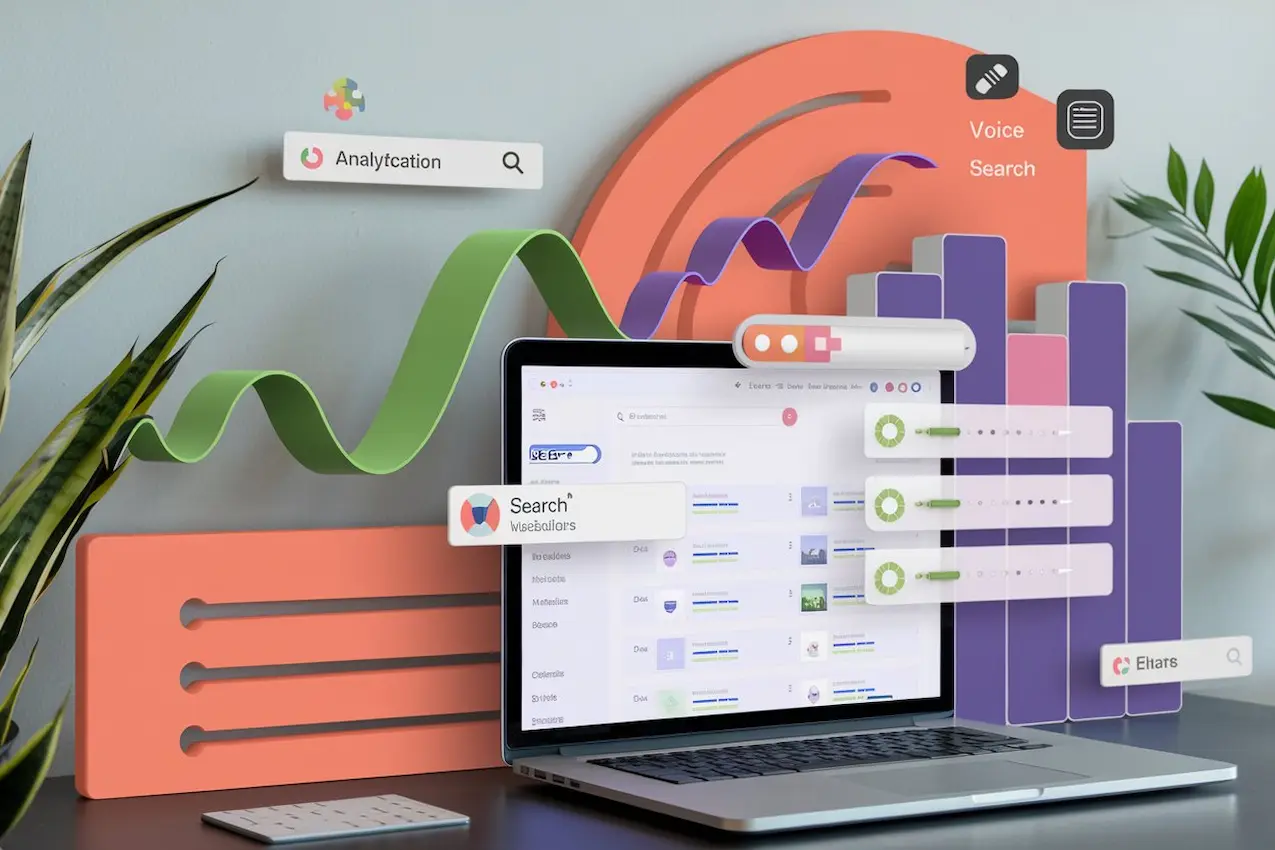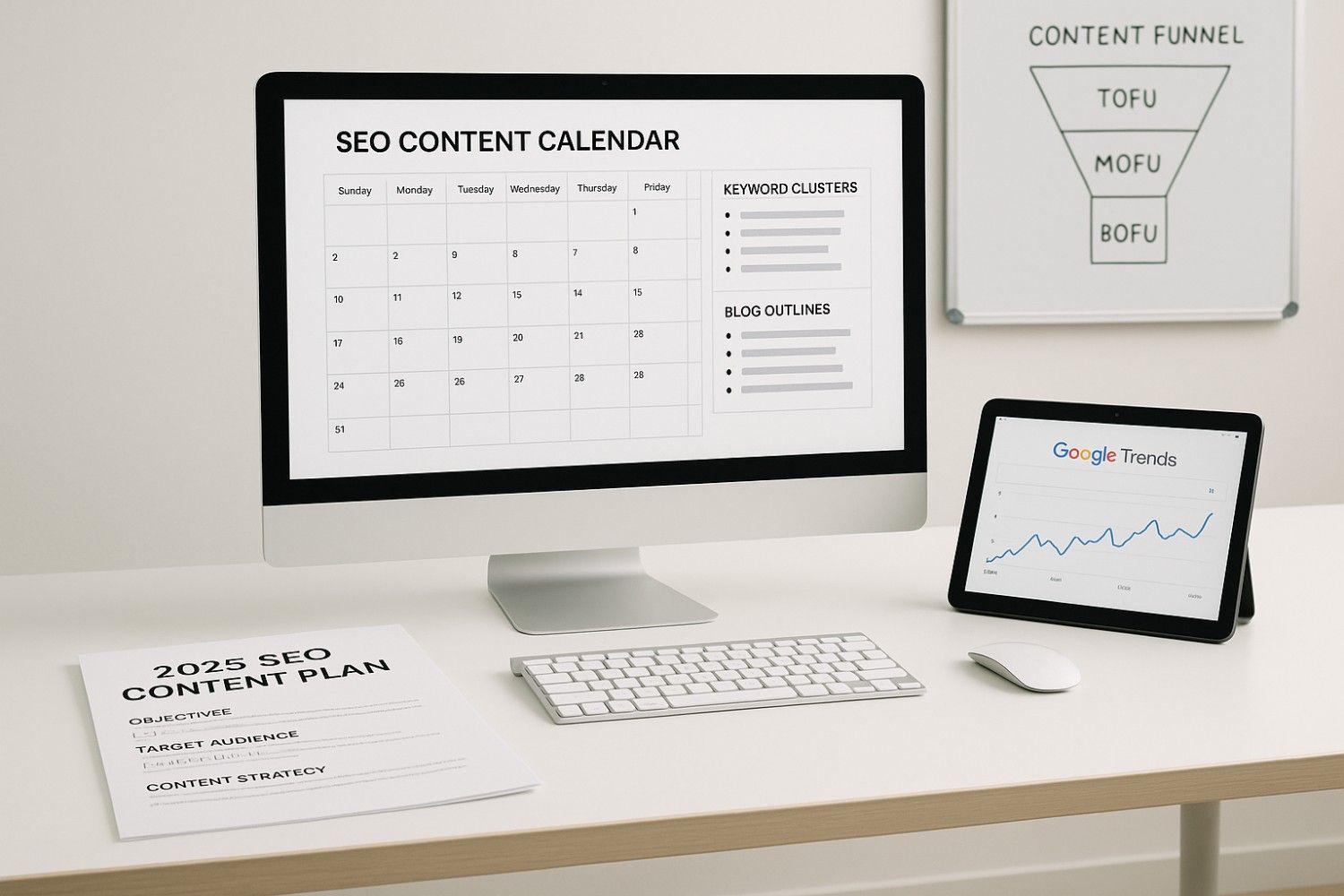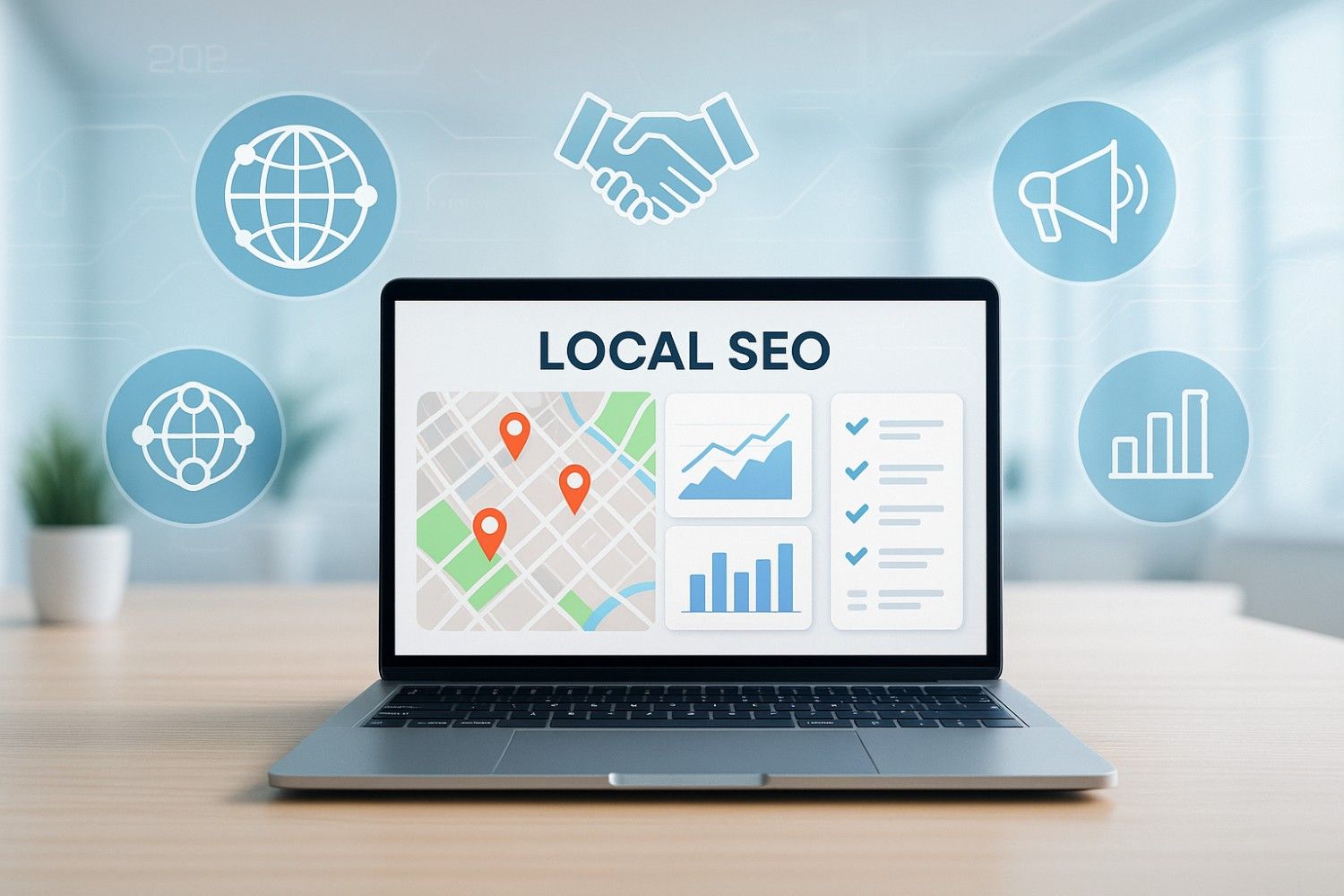In 2024, SEO remains the cornerstone of any successful digital marketing strategy. Whether you’re running an eCommerce website or a personal blog, optimizing your website for search engines is crucial. SEO has evolved significantly over the years, and staying ahead of the curve is more important than ever. To help you succeed, here are 10 proven ways to optimize your website for SEO in 2025.

Understanding SEO in 2025
SEO in 2025 is not just about keywords and backlinks. The landscape has grown more complex with advancements in artificial intelligence, voice search, and mobile optimization. Staying up to date with the latest trends ensures that your site not only ranks well but also delivers a great user experience.
| SEO Factor | Description | Why It Matters in 2025 |
|---|---|---|
| User Experience (UX) | Enhancing how users interact with your website. | Google prioritizes websites that offer a seamless experience. |
| Mobile Optimization | Ensuring your site works well on mobile devices. | Mobile-first indexing means Google evaluates the mobile version first. |
| Content Freshness | Regularly updating your website’s content. | Updated content helps improve rankings and keeps users engaged. |
| Page Speed | The time it takes for your page to load. | Fast load times are critical to reduce bounce rates and improve ranking. |
Evolution of SEO: What’s Changed?
Over the last few years, Google’s algorithms have become more sophisticated. Machine learning and AI play a huge role in ranking websites. Traditional tactics like keyword stuffing or link farming no longer work. Instead, Google prioritizes websites that offer valuable content, quick load times, and great user experience. SEO has become more user-centric, meaning if your site provides value to users, you are more likely to rank higher.
Core SEO Fundamentals to Keep in Mind
While SEO evolves, its core fundamentals remain the same. Keywords, content, site speed, mobile-friendliness, and backlinks are still essential, but the way we approach these factors has changed. Today, it’s all about enhancing these aspects while keeping user intent and experience in mind. This means focusing on providing helpful, engaging, and relevant content while also ensuring that technical aspects such as site performance are top-notch.
Keyword Research in 2025
Keywords remain a vital part of SEO, but the way we research and use them has changed significantly, thanks to advancements in AI and search engines’ deeper understanding of context.
| Tool/Technique | Purpose | Benefit for SEO in 2025 |
|---|---|---|
| AI-powered Keyword Tools | Identify relevant keywords using AI insights. | More accurate predictions of search trends and user intent. |
| Long-Tail Keyword Analysis | Focus on niche-specific keyword phrases. | Attracts more targeted and convertible traffic. |
| Voice Search Keywords | Find conversational phrases used in voice search. | Helps capture voice search traffic, especially on mobile devices. |
The Role of AI in Keyword Research
Artificial intelligence has reshaped how we perform keyword research. With tools powered by AI, you can now discover user intent behind search queries more accurately. This leads to more targeted keywords that resonate with what your audience is truly looking for. AI-driven tools also help you stay updated with trends, seasonal changes, and emerging keyword patterns.
Long-Tail Keywords for Better Rankings
In 2025, targeting long-tail keywords has become even more critical. These are specific phrases that usually have lower search volumes but are highly relevant to niche audiences. Focusing on long-tail keywords helps you attract visitors who are closer to making purchasing decisions, making your content more effective at converting traffic into leads or sales.
On-Page SEO Optimization
On-page SEO is one of the most direct ways to improve your rankings. It focuses on optimizing the content and HTML source code of individual pages to make them more attractive to search engines.
| On-Page Element | Optimization Tip | SEO Impact |
|---|---|---|
| Title Tags | Include primary keyword and keep it under 60 characters. | Improves visibility in search results and boosts click-through rates. |
| Meta Descriptions | Use persuasive language with relevant keywords, under 155 characters. | Entices users to click through from the SERPs. |
| Header Tags (H1, H2, H3, etc.) | Use a clear hierarchy of headings to structure content. | Enhances readability and helps search engines understand content structure. |
| Internal Links | Link to related content within your site. | Improves page authority and helps with indexing. |
Optimizing Title Tags and Meta Descriptions
Your title tags and meta descriptions are the first things users see when your site appears on search engine results pages (SERPs). Ensuring they are both optimized with relevant keywords and appealing to users can improve click-through rates significantly. In 2025, it’s important to craft these elements with user intent in mind, using compelling language to encourage clicks.
Content Optimization: Keeping it Fresh and Relevant
Search engines love fresh content, but simply updating old posts isn’t enough. You need to consistently create new, valuable content that addresses the latest trends and questions your audience has. Regularly updating your content helps maintain relevance and keeps your pages ranking high.
Using Structured Data for Rich Snippets
Structured data, also known as schema markup, helps search engines understand your content better and display rich snippets. Rich snippets can lead to higher click-through rates because they provide more information at a glance, such as ratings, product prices, and FAQs. In 2025, implementing structured data is crucial for optimizing how your content appears on SERPs.
Improving Site Performance and Speed
Page speed has always been a ranking factor, but in 2025, it has taken on even greater importance. Users expect fast load times, and Google rewards websites that meet this demand.
| Performance Issue | Solution | SEO Impact |
|---|---|---|
| Large Image Sizes | Compress and optimize images. | Faster load times improve user experience and rankings. |
| Unoptimized CSS/JavaScript | Minify CSS and JS files. | Reduces load time and enhances page performance. |
| Browser Caching | Leverage browser caching to store resources. | Reduces load time for returning users, boosting SEO. |
How Page Load Times Affect SEO
If your site takes more than a few seconds to load, you’re likely losing visitors before they even see your content. Slow load times can increase your bounce rate, which signals to search engines that users aren’t finding your site valuable. This can hurt your rankings, making speed optimization a priority.
Tools to Test and Improve Website Speed
There are several tools available to help test your website’s speed, such as Google PageSpeed Insights, GTmetrix, and Lighthouse. These tools provide insights into what’s slowing down your site and offer recommendations to fix the issues. Some common fixes include optimizing images, leveraging browser caching, and minifying CSS and JavaScript files.
Mobile-First Indexing and Optimization
Google has been prioritizing mobile-first indexing for a few years now, meaning your website’s mobile version is what’s primarily evaluated for ranking.
| Mobile Optimization Task | Description | SEO Benefit |
|---|---|---|
| Responsive Design | Ensure your site adapts to all screen sizes. | Improves user experience and ranks better in mobile-first indexing. |
| Mobile Speed Optimization | Optimize mobile load times. | Faster load times reduce bounce rates and improve rankings. |
| Touch-Friendly Navigation | Make buttons and links easy to click on touch devices. | Enhances user experience and reduces bounce rates. |
Mobile Usability and User Experience
In 2025, having a mobile-friendly website is non-negotiable. Mobile usability encompasses everything from how well your site displays on mobile devices to how easy it is to navigate on a smaller screen. Ensure that your website is optimized for touch interaction, with buttons and links that are easy to tap and content that adjusts to different screen sizes.
Ensuring Responsive Design for Better SEO
Responsive design ensures that your website adapts to any device, whether it’s a smartphone, tablet, or desktop. Google favors responsive websites because they provide a seamless user experience, regardless of the device being used. By ensuring your website uses responsive design principles, you’re not only improving user experience but also boosting your SEO.
The Importance of Quality Backlinks in 2025
Backlinks remain one of the strongest signals to search engines about the authority and relevance of your site. However, the focus in 2025 is on quality rather than quantity.
| Backlink Source | Type of Link | SEO Value |
|---|---|---|
| High-Authority Sites | Editorial backlinks from trusted domains. | Increases your site’s authority and trustworthiness in search engines. |
| Industry-Specific Sites | Backlinks from relevant industry websites. | Improves relevancy and targeted traffic. |
| Guest Posts | Backlinks from articles on other websites. | Helps increase referral traffic and organic ranking. |
How to Build Authority with Backlinks
Earning backlinks from reputable, high-authority sites can significantly boost your rankings. These links act as endorsements from other websites, signaling to Google that your content is valuable. Focus on earning backlinks naturally through high-quality content, guest posting, and building relationships with other industry leaders.
Strategies to Get High-Quality Backlinks
In 2025, it’s essential to avoid low-quality link-building practices like purchasing backlinks or engaging in link exchanges. Instead, focus on creating shareable content, such as in-depth guides, case studies, and research reports. Collaborating with influencers or thought leaders in your niche can also help you secure high-quality backlinks.
Optimizing for Voice Search
With the rise of voice-activated devices like Siri, Alexa, and Google Assistant, optimizing for voice search has become essential.
| Voice Search Factor | Description | SEO Strategy |
|---|---|---|
| Conversational Keywords | Longer, natural-sounding phrases. | Optimize content for question-based queries and FAQs. |
| Local SEO for Voice | Users often ask for local recommendations. | Use location-based keywords and update your Google My Business profile. |
| Featured Snippets | Concise answers that appear at the top of SERPs. | Structure content to provide clear answers to common questions. |
How Voice Search is Changing SEO
Voice search queries tend to be longer and more conversational than text-based searches. This shift means you need to optimize your content to answer specific, often localized, questions. Optimizing for voice search can help you capture traffic from users who are searching hands-free, usually on mobile devices.
Tips for Optimizing Content for Voice Search
To optimize for voice search, focus on using natural language in your content. Frequently Asked Questions (FAQs) and answer-based content are particularly effective for voice search. Also, make sure your content is concise and directly answers common user questions.
User Experience (UX) and SEO
User experience is now closely tied to SEO performance. Google tracks how users interact with your site, and a poor experience can lead to lower rankings.
| UX Improvement | Description | SEO Impact |
|---|---|---|
| Easy Navigation | Ensure that users can easily find what they need. | Reduces bounce rates and improves engagement metrics. |
| Readability | Use readable fonts and proper spacing. | Improves the time users spend on your site, which boosts rankings. |
| Page Layout | Organize content logically with clear headings. | Helps search engines understand your content structure. |
How UX Affects SEO Rankings
Google’s algorithms now consider UX signals like time spent on a page, bounce rate, and how many pages a user visits before leaving. A positive user experience can lead to better engagement, which, in turn, signals to search engines that your content is valuable.
Best Practices for Improving UX
To improve UX, focus on intuitive navigation, fast load times, and visually appealing designs. Avoid intrusive pop-ups, ensure your content is easy to read, and prioritize accessibility for all users.
Local SEO Strategies for 2025
If you have a local business, optimizing for local search is essential for driving traffic and attracting customers.
| Local SEO Strategy | Action | Benefit |
|---|---|---|
| Google My Business (GMB) Optimization | Ensure your GMB profile is fully filled out and accurate. | Improves visibility in local search and maps. |
| Local Keywords in Content | Include keywords related to your location. | Attracts more local traffic and helps you rank for relevant queries. |
| Local Reviews | Encourage customers to leave positive reviews. | Positive reviews increase trust and improve local rankings. |
Optimizing Google My Business Listings
Your Google My Business (GMB) profile is one of the most important factors for local SEO. Ensure your listing is complete with accurate business hours, location, contact information, and relevant keywords. Encourage satisfied customers to leave positive reviews, as this can boost your local rankings.
Local Keywords and Content Strategy
Local keywords are crucial for appearing in local search results. Incorporate location-based keywords into your content and meta tags, and create blog posts or landing pages that target specific neighborhoods, cities, or regions.
The Role of Analytics in SEO
Analytics provide insights into how well your SEO strategy is performing and what areas need improvement.
| SEO Metric | What It Measures | Why It Matters |
|---|---|---|
| Organic Traffic | Number of visitors from search engines. | Tracks the effectiveness of your SEO efforts. |
| Bounce Rate | Percentage of visitors leaving without interaction. | High bounce rates indicate poor user experience or irrelevant content. |
| Conversion Rate | Percentage of visitors who take desired actions. | Tracks how well your website converts traffic into leads or sales. |
| Page Load Time | The time it takes for a page to fully load. | Faster load times improve user experience and SEO rankings. |
Tracking SEO Success with Google Analytics
Google Analytics is an essential tool for monitoring your site’s performance. Use it to track key metrics such as organic traffic, bounce rate, and user behavior. This data helps you understand what’s working and what needs tweaking in your SEO strategy.
Understanding Key SEO Metrics
Important SEO metrics to track include keyword rankings, organic traffic, conversion rates, and backlink profiles. By understanding these metrics, you can make data-driven decisions to improve your SEO efforts.
Security and SEO: The HTTPS Requirement
In 2025, website security is a top priority for both users and search engines. If your site isn’t secure, it will negatively impact your SEO.
| Security Measure | Description | SEO Impact |
|---|---|---|
| HTTPS Encryption | Encrypts the data exchanged between the user and your website. | Google rewards secure sites with better rankings. |
| SSL Certificates | Obtain an SSL certificate to enable HTTPS. | Enhances trust with users and improves security rankings. |
| Regular Security Audits | Periodically check for vulnerabilities. | Ensures your site stays secure and compliant with Google’s guidelines. |
Why HTTPS is Non-Negotiable in 2025
Google favors secure websites and has made HTTPS a ranking signal. If your website still uses HTTP, it’s time to upgrade to HTTPS. This not only improves your search rankings but also ensures that user data is protected, building trust with your audience.
Steps to Secure Your Website
Securing your website starts with obtaining an SSL certificate, which encrypts the data exchanged between your site and its users. Beyond this, ensure that your website is protected from common threats such as malware and hacking by using strong passwords, regularly updating software, and monitoring for vulnerabilities.
FAQs
What is the most important SEO factor in 2025?
The most important SEO factor in 2025 is user experience (UX). Google is increasingly prioritizing websites that provide a great experience for visitors, from fast load times to mobile usability.
How do I optimize my website for voice search?
To optimize for voice search, focus on using natural, conversational language in your content. Answer-based content and FAQs are particularly effective.
What are long-tail keywords and why are they important?
Long-tail keywords are specific, less common search terms that are highly targeted. They are important because they attract users who are more likely to convert, leading to higher-quality traffic.
How can I improve my website’s load time?
Improving load time can be achieved by optimizing images, reducing file sizes, and using browser caching. Tools like Google PageSpeed Insights can help you identify specific issues slowing down your site.
Is HTTPS required for SEO in 2025?
Yes, HTTPS is required for SEO in 2025. Google has made it clear that secure websites will rank better than those using HTTP.
What are backlinks and why are they important?
Backlinks are links from other websites to yours. They signal to search engines that your content is valuable and authoritative, helping to improve your site’s ranking.




